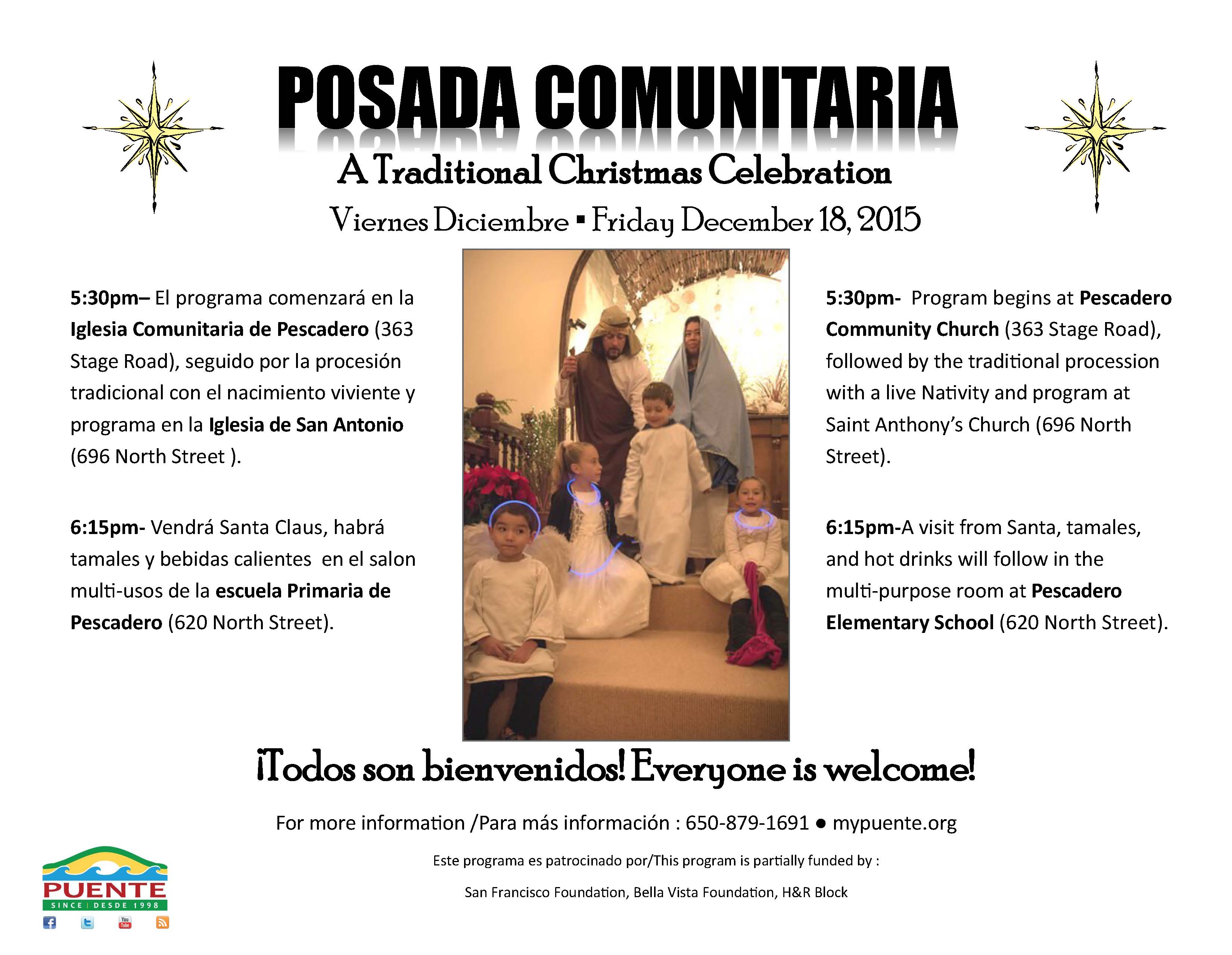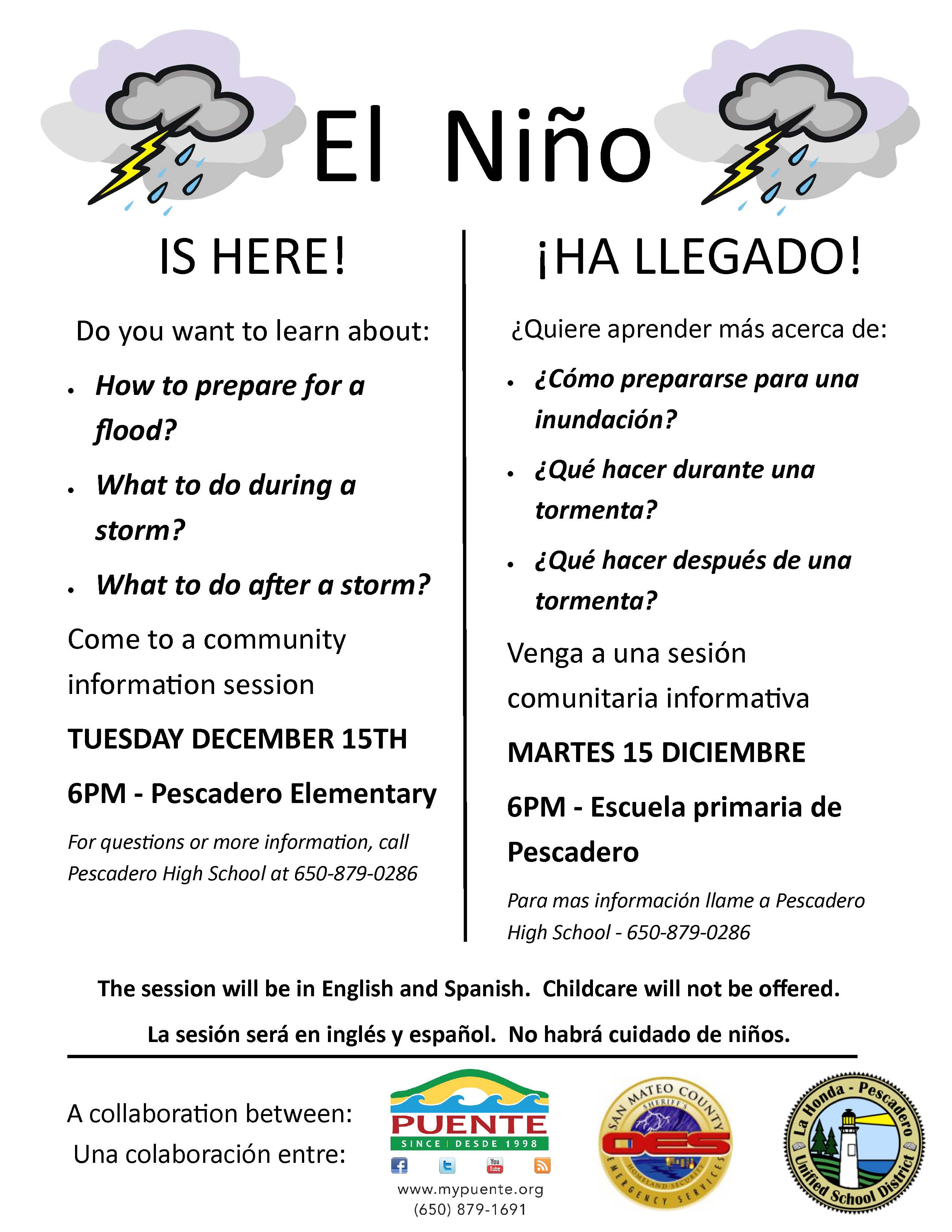“I don’t like it.”
Faced with a tough algebra problem, it’s not hard to see why Leonie, a middle school student in Pescadero, would lay her head on the table in front of her workbook and groan.
“You’re good at it, though,” answers her mentor Vanessa Centuron, a college student enrolled at UC Santa Cruz.
Leonie shakes her head. But she is good at math. She goes on to solve that algebra problem, and another one. Then she gets frustrated again.
“I can’t do it, I’m not smart,” declares Leonie.
“Yes, you are. You’re extremely intelligent. You just need to believe that,” coaxes Centuron, patiently.
Middle school students everywhere struggle with math homework. Here at Pescadero Middle/High School, students like Leonie are lucky enough to be paired with UCSC students like Centuron, who offer a kind of support that goes beyond the academic realm.
Leonie relaxes again. Around the room, at long wooden tables, several other mentor/mentee teams concentrate on science, reading and other English homework. Some are hunched over workbooks, others absorbed in a computer screen, none are alone.
To these 11-to-14-year-olds, the mentors in their midst aren’t just helping them with their schoolwork – they’re incredibly cool college students who represent their own prospective achievements.
Centuron even looks cool, with retro hipster glasses, an eyebrow piercing, and fingernails painted in purple and blue. She is one of six volunteer mentors who have been paired with middle school mentees as part of Classroom Connection, a UCSC field study-based education course. The program has evolved into an exciting partnership between Puente, the La Honda-Pescadero Unified School District and Merrill College (one of the ten colleges at UCSC).
The college students, who are all Latino and English-Spanish bilingual, earn credits while they hone their teaching skills in K-12 classrooms in Santa Cruz, Watsonville and Pescadero. Pescadero is by far the longest drive for this cohort of college students, who take a two-hour round-trip van ride to the school district’s after-school program on Tuesdays and Thursdays. Several Merrill College students also volunteer in the mornings as classroom aides at Pescadero Elementary.
“You need to be making your future plans in middle school, and what better way to do it than to engage with a UC mentor who’s actually involved in it?” asks Margaret Sedillo, Guidance Counselor and Coordinator of the Mentor Program at Pescadero Middle/High School. “To see college life up close plants that seed for our students: ‘I can do this too.’”
The UCSC mentors are here because they want to be. Like their mentees, who have asked for a mentor, they are self-selecting. Some want to be educators; others are interested in other fields like psychology. But they chose Pescadero High, the smallest public high school in four surrounding counties, for reasons that are often deeply personal.
“I want to work in a high school with a lot of Latino students. I come from Oakland, where you often hear the message: ‘You can’t make it,’” says Monica Meza, a fourth year student at UCSC.
The college mentors are the children of first-generation Latino Americans, and they are often the first in their families to attend a four-year university. That’s something they have in common with their mentees, and it forges a bond. The younger students often ask detailed questions about college: what’s it like in a dorm? How do you pay for books and tuition when your family lives below the poverty line?
Mentors can make a difference in their mentees’ lives that is not only academic, but also behavioral.
Centuron says Leonie reminds her of what she was like at 13, in a way that worries her. Growing up in South San Diego, Centuron started skipping classes and spent a lot of time in detention. She was even suspended for a time. “I had horrible grades and it really defined my future. I want to help someone else before her GPA goes downhill. I feel that if I can get in there sooner, maybe her dreams won’t be so limited.”
Centuron and Leonie spend a lot of time discussing her future, she says. “I see a change in her behavior already.”
Puente board member Larry Trujillo knows just how many limitations these young students need to overcome.
“Some struggle with English language learning. Sometimes the family might not have education themselves and not know how to guide their students. Sometimes the student falls behind and loses confidence,” he says.
And when that happens, it can be very hard to regain. That’s another reason why the mentors can make such a profound difference, adds Trujillo. “Helping a student get their confidence back is as important as the academic skills.”
Trujillo has coordinated programs to bring UCSC students into Pescadero classrooms – twice. A former lecturer in Community Studies at UCSC, Trujillo helped create a program called Step to College that thrived in Pescadero for many years, bringing up to 60 UCSC mentors into local classrooms. It was discontinued when Trujillo retired.
But Puente did a reboot in 2014 when Trujillo and Suzanne Abel, Puente’s then-Academic Director, heard about Classroom Connection. Merrill College Provost Elizabeth Abrams was on board right away.
Mentors work with students on a full range of coursework and special projects. They help them prepare for tests. They also work with students on their study skills and time management issues – help them organize their backpacks and use their planning calendars.
Not only does Classroom Connection improve college and career readiness, it adds resources to the classroom and helps kids and their parents to see themselves in a different light. It dovetails with a La Honda-Pescadero Unified School District program that teaches parents how to engage with their children’s schoolwork, even if they don’t always understand it. They also learn about things like credits and transcripts.
“There’s been a longstanding commitment from the school district for this partnership. They’ve been doing the heavy lifting for a long time. We’ve played a role in making it a deeper program,” says Kerry Lobel, Executive Director of Puente.
Best of all, teachers themselves are already seeing very positive results. Last year, two teachers wrote to Trujillo to share just how much mentees had already improved by almost every qualitative and quantitative standard: classroom behavior, student performance on tests, quality and quantity of homework, motivation and independent reading.
Having a mentor can change a life forever. Noel Chavez, Puente’s newly hired Education Director, went into education because of key experiences with mentors as a youngster. Chavez came to the U.S. as a child. When he started school in the third grade, he could only write his name. But he loved academics and quickly excelled thanks to people like his fifth grade mentor, a Stanford University student who “gave me a perspective on what my future might look like,” he says.
Chávez also received life-changing mentorship at Sequoia High in Redwood City when he met student ambassadors from an outreach program at Cañada College. Later, he himself graduated from Cañada and later was hired to supervise that same student ambassador program.
“I noticed the chain of others mentoring me and I’ve been blessed to take on leadership in that role,” he says.
Pescadero students don’t have to imagine college life – they saw it for themselves on a recent field trip to UC Santa Cruz. The handcrafted tour took students to Merrill College, where Provost Abrams personally greeted them. They visited the university’s Chicano Latino Resource Center, where a group of Latino students talked to them about the experience of going to college. They saw impressive libraries, science and sports facilities. They got to eat in the college cafeteria. Best of all, they got to spend the whole day with their mentors, who patiently answered all their questions. After months of hearing about the university, they were as eager as if they were visiting an amusement park.
“They all came back excited about college. It made us feel as though the seeds are taking root,” says Sedillo.






